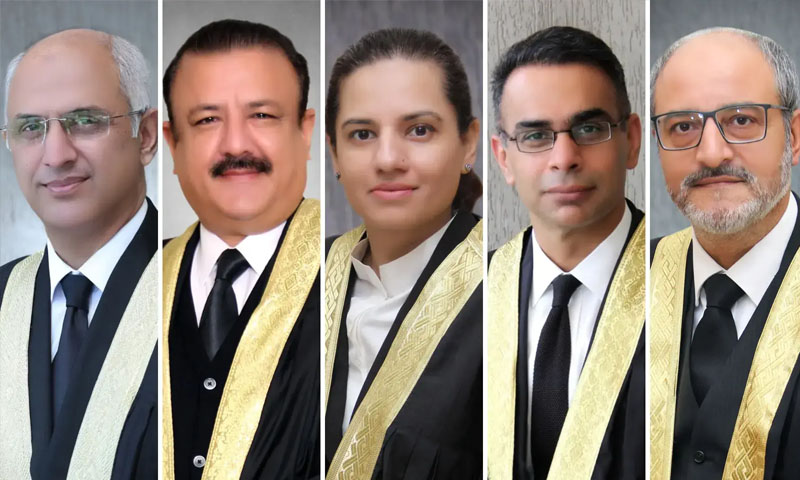- Web Desk
- Today
IHC judges challenge fixing of intra-court appeal before FCC
-

- Web Desk
- Nov 22, 2025

ISLAMABAD: Five judges of the Islamabad High Court (IHC) have challenged the decision to fix their intra-court appeal, pertaining to the transfer of judges, before the Federal Constitutional Court (FCC), arguing that the move is unconstitutional and violates the separation of powers.
The petition has been filed by IHC judges Justice Mohsin Akhtar Kayani, Justice Babar Sattar, Justice Sardar Ejaz Ishaq Khan, Justice Saman Rafat Imtiaz and Justice Tariq Mehmood Jahangiri.
The FCC has scheduled the appeal for hearing on November 24 before a six-member larger bench headed by Chief Justice Aminuddin Khan. The bench includes Justice Hassan Rizvi, Justice Baqar Najafi, Justice KK Agha, Justice Rozi Khan and Justice Arshad Hussain Shah.
In their plea, the judges submitted that the appeal was shifted from the Supreme Court to the FCC under the 27th Constitutional Amendment, which, according to them, is contrary to the basic scheme of the Constitution.
They argued that the legislature, executive and judiciary are established under the 1973 Constitution as three distinct pillars of the state, with clearly defined powers and limits.
The petition, filed before the FCC, stated that the 27th Constitutional Amendment cannot be used to curtail the powers or jurisdiction of the judiciary, nor can it be employed to undermine judicial independence.
The judges maintained that several Supreme Court rulings have already clarified the principle of separation of powers.
The IHC judges had earlier filed an intra-court appeal against the Supreme Court’s verdict that upheld the transfer of judges to the Islamabad High Court as lawful. A five-member bench of the apex court had rejected their appeal through a majority judgment.
According to the new petition, the 27th Constitutional Amendment was invoked to move the appeal from the Supreme Court to the FCC, a step the judges argued was beyond constitutional limits. They sought returning of the case to the Supreme Court, maintaining that the FCC does not have jurisdiction in this case.
The judges further contended that the amendment had been used in a manner that effectively weakens the judiciary’s independent functioning.
They argued that constitutional powers cannot be exercised to restructure or reduce the role of the courts.
The judges also pointed out that intelligence-based and structural mechanisms introduced under the recent amendment were inconsistent with established constitutional safeguards.




